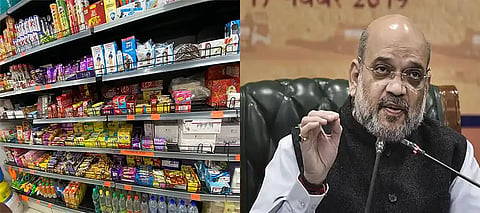

In the aftermath of Operation Sindoor, India is mulling over invoking ESMA in the nation. On Wednesday, long queues of people were witnessed in Punjab outside a supermarket after the bordering state of India was put on high alert. D-Mart near Pathankot Bypass Chowk in Jalandhar witnessed long queues of people waiting to purchase groceries. Following last night’s Indian air strike on Pakistan in response to the Pahalgam terror attack, a wave of panic has gripped the public. Fearing a potential war, people have begun rushing to markets to stock up on essentials. As a result, crowds have started gathering at ration stores across Jalandhar city. In order to keep people calm and ban the hoarding of common commodities, India is considering invoking ESMA. Now, the question arises what is ESMA, and what are the guidelines of the government? Below is all you need to know-
As per Mint, the Centre is preparing to impose the Essential Services Management Act (ESMA). Under ESMA, the government can invoke to prohibit employees from striking or people from refusing to work in certain essential services, which are necessary for the maintenance of normal life in the country. Also, if the government's Essential Commodity Act restricts people from panic buying or hoarding.
Under this act, the government can control the production, supply, and distribution of certain commodities. The act is aimed at maintaining or increasing supplies and securing the equitable distribution and fair price availability of these commodities. The act is also intended to work against unethical trade practices like hoarding and black marketing.
Col. Sofiya Qureshi said, "Operation Sindoor was launched by the Indian Armed Forces to deliver justice to the victims of the Pahalgam terror attack and their families. Nine terrorist camps were targeted and successfully destroyed. Over the last three decades, Pakistan has systematically built a terror infrastructure. It is a complex web of recruitment and indoctrination centres, training areas for initial and refresher courses, and launchpads for handlers."
Col. Sofiya Qureshi, while addressing the media, also presented videos showing multiple hits on the Mundrike and other terrorist camps in Pakistan and PoJK.
Col. Sofiya Qureshi stated, "No military installation was targeted, and till now there are no reports of civilian casualties in Pakistan."
What raised everyone's eyebrows when Col. Sofiya Qureshi shared the videos showing destroyed terror camps, including from the Muridke, where those involved in the 2008 Mumbai Terror attacks - Ajmal Kasab and David Headley received their training..."